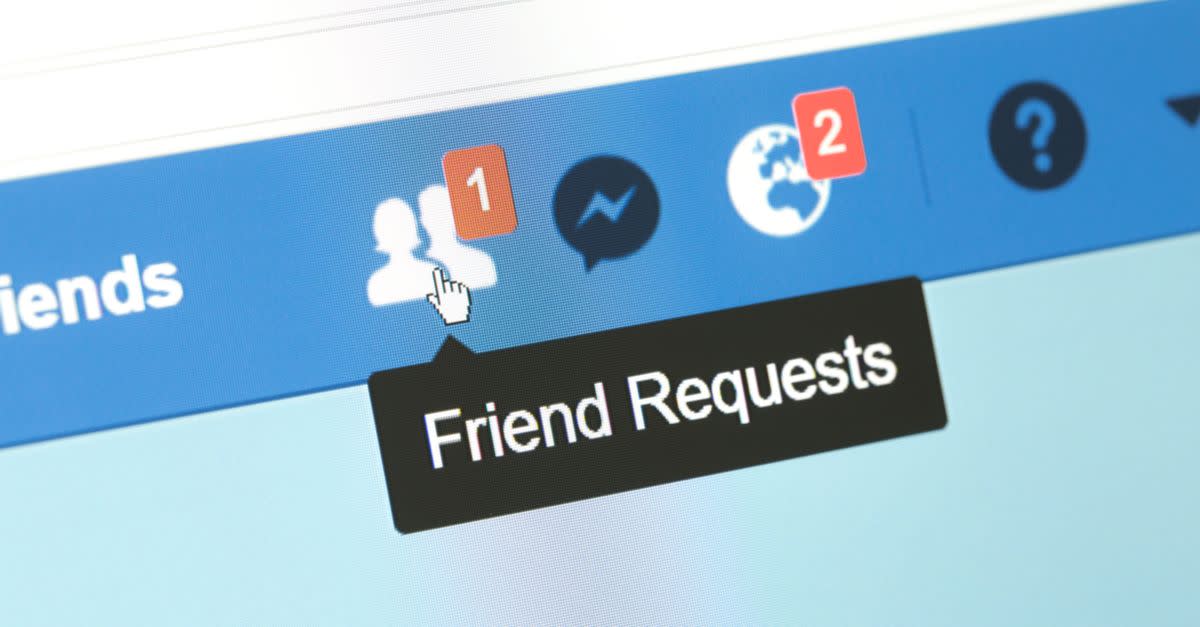I am an ordained minister and Bible teacher, and I post biblical and spiritual information every day. Whenever I get a friend’s request, I think it is someone who has read some of my work and wants more. Accepting the request is like accepting someone into my church service. If I decline the request, I might be denying the person of reading something that would help him or her to grow spiritually. Facebook has given some guidelines to help most people make their decision. Below are my personal tips for accepting or declining a friend’s request.
Become Suspicious
I do not send a friend request unless I have discussed it with that friend. I do not arbitrarily send a request to someone I do not know or care to know. I wish others would extend that same courtesy to me. I get several requests every day from someone I do not know. So, when do I accept or decline the request? I am suspicious because the request might not be from the person that has his name on it. Fake friend requests are common. However, there are ways to tell if they are real or fake.
Why You Might Receive a Fake Friend Request
There might be a number of reasons you receive a fake friend request.
Scammers: Scammers send friends requests to get personal information and to contact your friends. Malicious Linkers: You may receive friend requests from people who post malicious links to malware. It ends up in your newsfeed if you accept the request. Catfishers: The person you think is sending the request may not be the person you think it is. Catfishers get their victims by sending out random requests to a large number of people. From an Ex: If a relationship ends badly, your ex could design a fake profile and send you a friend request just to keep tabs on you. An ex will know exactly what you are doing without you knowing that the ex is stalking you. From Current Relationships: Your spouse or significant other might test your fidelity by having a false profile. What you post could be held against you later. Private Investigators: Private investigators can use false profile friend requests to learn damaging information about you to be used against you in legal matters. Automatic Requests From Facebook: Facebook automatically sends friend requests to those who are new on Facebook.
How to Spot a Fake Friend Request
In just nine months last year, Facebook removed more than 5.4 billion fake accounts. That was up from 3.8 billion for all of the previous year. So, you see how fast fake accounts are appearing. Believe it or not, you have probably received one or more of those fake friend requests. There are several things you could do to determine if a Facebook friend request is fake or real before clicking “Accept” or “Decline.”
Decline a Friend Request Without Feeling Guilty
There should be no guilty feeling for declining a friend request whether you know the sender of the request or not. If you receive a friend request from people you don’t want as a friend on Facebook, simply select “Delete Request.” That will remove the request from your list. You can decline a request without the person being notified that his request was declined. However, that doesn’t keep the person from sending you another one in the future. If you take no action on the request, it will remain pending, and the person won’t be able to send you another request.
When to Remove a Friend
Sometimes you will know immediately if the friend request you just accepted is someone you want to be friends with. Many times I have received a friend request and people send numerous messages for me to chat with them. They get angry when I don’t waste my time chatting with someone I don’t know. When I don’t chat with them, they say mean things to me. Needless to say, I remove them immediately. I once accepted a friend request and the person started sending me “pillow talk” messages. I removed him from my list because I am not his “honey, sweetheart, or boo.” I usually warn people to stop sending me unwanted videos. If they continue to send me videos, I remove the person from my list. This content is accurate and true to the best of the author’s knowledge and is not meant to substitute for formal and individualized advice from a qualified professional.
Comments
Dora Weithers from The Caribbean on September 15, 2020: A very helpful guide to accepting or refusing Facebook friends. Thanks! Rêveuse Consciente from Pakistan on September 12, 2020: Some people hesitate in showing their real photos. Your article listed number of ways to figure out the real face book identities. This is informative and helpful. Thank you Margaret. Eric Dierker from Spring Valley, CA. U.S.A. on September 12, 2020: Hmm. I only have friends that I have known for sometime. Some 60 years. This is very interesting with good information for me. Thank you. Cheryl E Preston from Roanoke on September 12, 2020: Thank you Margaret. I see fake requests all the time and several of my friends have accepted them. We really do need to pay close attention.

